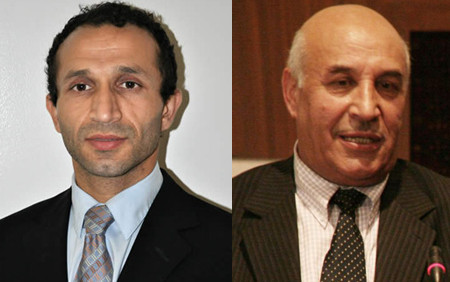By Matthew Rosenberg

The puncher, Haroon Aloko, is the son of Afghanistan's attorney general Mohammed Ishaq Alako.
If war is what happens when diplomacy fails, what results when diplomats themselves fail to be, well, diplomatic with one another? At the Afghan Embassy in Washington, the answer was a punch in the face.
Last week, after an argument over who was going to put together a filing cabinet and where it would be placed, an Afghan Embassy staff member who handles relations with Congress decked a colleague who handles the mission’s administrative affairs, current and former diplomats said.
No lasting damage was done, except maybe to the career of the aggressor. Yet even that is not a certainty — the puncher, Haroon Aloko, is the son of Afghanistan’s attorney general. The Foreign Ministry said he was called back to Kabul for “discussions,” but an embassy staff member said he was still in the United States, waiting for the incident to blow over before resuming his duties. The staff member did not want to be named for fear of damaging his career.
“This man, he assaults people. But he is not fired,” the staff member said. “This is our most important embassy in all of the world, but we are living with thugs. You see why I would want not to have my name involved?”
On its own, a single office scuffle is unlikely to change Afghanistan’s trajectory as it grapples with the United States’ slow disengagement. But the punch and the Foreign Ministry’s cautious reaction offer a reminder of a rampant problem for Afghanistan: nepotism that runs up and down the government, from teaching appointments in rural schools to posts at the country’s well-appointed embassies in Western capitals, like the Afghan mission in the Kalorama neighborhood of Washington.
The perception that the best jobs — as well as the most lucrative business deals — go to those with the best connections has sharply undermined popular support for the Afghan government.
As for the matter at the Afghan Embassy in Washington, the Foreign Ministry said it was under control. “The important thing is that this was dealt with immediately,” said Janan Mosazai, the ministry’s spokesman. He emphasized that Ambassador Eklil Hakimi was not involved — Afghan news reports initially indicated that he was the one who had been slugged — and that the envoy quickly informed Kabul about the incident.
Mr. Aloko did not respond to calls or text messages to his American cellphone seeking comment.
Alissa J. Rubin contributed reporting from Kabul, Afghanistan.



